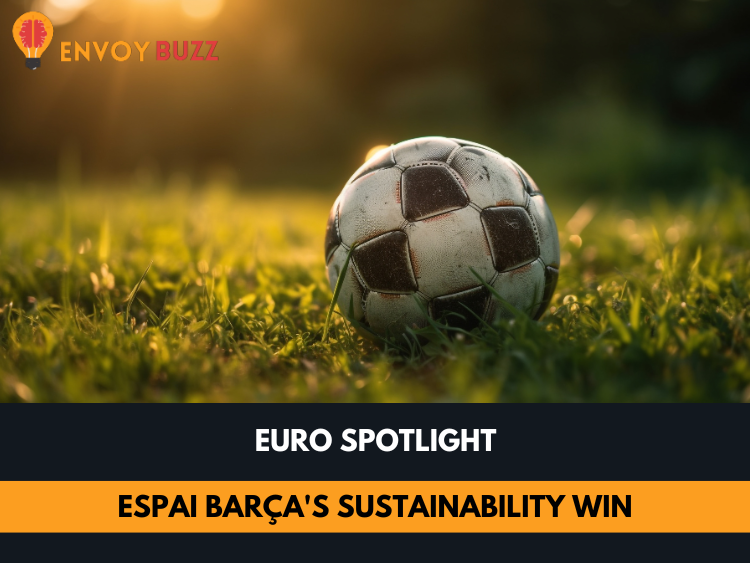The Congress Organized by The Economist Highlights Key Sustainable Elements of the Project, Emphasizing FC Barcelona’s Commitment to Sustainability and its Application in the Redevelopment of Spotify Camp Nou.
Sustainability holds a central position in FC Barcelona’s 2025 Strategic Plan and serves as a fundamental principle for the Espai Barça project. The project design is centered on minimizing environmental effects while enhancing the well-being and health of residents in the local community and the city. The club unveiled its strategies for the new stadium during the European Sports Integrity Summit, conducted online today with the theme “Shielding the true spirit of sports in ambiguous times.” The summit was organized by Economist Impact, a division of the esteemed British publication, The Economist.
As part of the summit’s Sport Sustainability block, FC Barcelona’s head of engineering and sustainability, Jorge Laborda, spoke about the significance of sustainability for the team. He started out by outlining the crucial function performed by Jordi Portabella’s Sustainability Area and how it directly affects Barça’s day-to-day operations.
Laborda detailed the various elements incorporated into the planning of Espai Barça, with particular emphasis on the upcoming Spotify Camp Nou. The infrastructure is slated to be entirely sustainable, prioritizing environmental considerations. Notably, substantial endeavors are underway to reduce material consumption, concurrently advocating for greener transportation methods and implementing additional measures to safeguard the environment.
Spotify Camp Nou is the first stadium in the world to be LEED certified, and Espai Barça is BREEAM certified. The various projects include the installation of 18,000m2 of photovoltaic panels on the exterior roof, a 25ha landscaped area, and circuits that will result in approximately 40% energy savings. In addition to having a rainwater collection system that directs collected rainwater into subterranean tanks, the future ground will be able to generate its own energy and emit zero carbon dioxide. This will result in a 20% reduction in water consumption.
Sustainability and sport
The European Sports Integrity Summit serves as a prominent conference uniting leaders from major sports organizations and businesses across Europe. Its primary objective is to exchange best practices in crucial areas like sustainability, diversity, and inclusion. The summit highlights initiatives such as those undertaken by FC Barcelona and Espai Barça, emphasizing sustainability. This platform provides the club with a valuable opportunity to directly present detailed insights and reaffirm its dedication to constructing an entirely sustainable Espai Barça.
FC Barcelona’s focus on sustainability not only reflects a responsible approach to infrastructure development but also contributes to the global imperative of addressing environmental concerns and promoting a greener, more sustainable future.
For more news on sustainability visit Envoybuzz.

